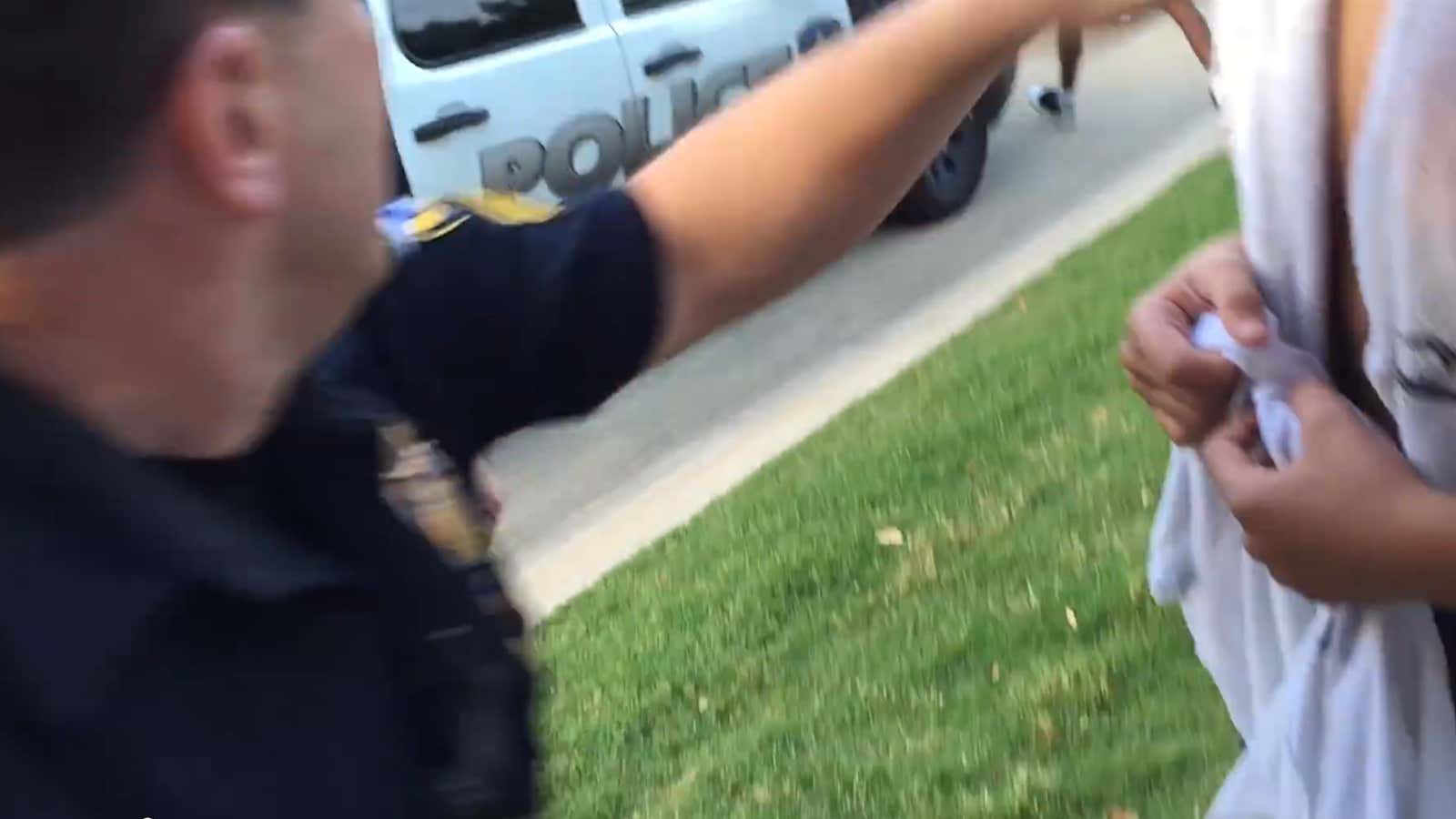This past weekend, millions of people watched a terrible scene unfold—we held our breath as a white police officer grabbed a black girl in a bathing suit by her hair and sat down on her. We heard her sobbing, we watched the officer pull out his gun and point it at two boys as they responded to her cries.
In that video from McKinney, Texas, we saw one boy who had run from the officer’s gun, get dragged back by two policemen. We watched in horror, praying that we were not witnessing an execution. And today we breathed a collective sigh of relief when we learned that this officer, corporal Eric Casebolt, had resigned. Hopefully, he will never get another opportunity to hurt someone vulnerable again.
We all know the names of black boys and men killed by police (or wannabe police)—Tamir Rice, Michael Brown, Trayvon Martin, Akai Gurley, and Amadou Diallo. We also know—although we also tend tend to forget—the names of women and girls lost in the very same way: Rekia Boyd, Tarika Wilson, Aiyana Jones, Miriam Carey and others, lost in the backdrop to a narrative that focuses on the ongoing clash between white and black masculinity.
But I also worry about the black girls who survive. I wonder about that girl in the video, pleading and sobbing as people stand around without helping. I am washed away by her terror, that panic that strikes when you realize that you could be killed amid a crowd of onlookers, and that no one will do anything to stop it.
I can’t stop thinking about the black girls who survive.
I think about Tamir Rice’s sister, Tajai, the girl attacked and handcuffed by police as she tried to reach her baby brother as he bled to death.
And Rachel Jeantel, who told her best friend to run away from an armed man following him in the dark—she survived.
And a tiny baby girl who watched her mother’s body get riddled with bullets from inside her car seat.
The black girls who survive are not unscathed.
Black women and girls live in fear for others and for themselves. We are scared that we might pick up a phone and learn that the man, son, or brother we love is gone. But we also live in unrelenting anticipation that we will be beaten on the side of a California highway, raped by police officers, handcuffed in kindergarten and arrested for science experiments��at school.
We are afraid of surviving only to be attacked by a police officer in public on a sunny Friday summer evening on our way to the pool. We are afraid that no one will help us, that no one will ever see us as a girl worth saving.
Survival can be an unspeakable burden. The very labor of keeping your sanity and your joy is its own, consuming work. Even as black women navigate spaces that question our humanity, knowledge, and capabilities, we are expected to smile. Even as we are maligned by the media as bad mothers and lazy people, we are told to keep a positive attitude in the face of oppression.
We take buses to bring our children to visit relatives in prison, we post bail, we work two jobs, we go to church to pray and plead, we attend college and vote in elections more than anyone else in the country, we risk our lives in intervening with police to keep their rage from spilling over to our boys and men. And we are told that our pain, in comparison to that of the men we love, doesn’t matter.
Amid the protests against police brutality, it’s useful to remember that pain doesn’t end when the bullets stop firing. The trauma continues for those of us who manage to get away with our lives. Sometimes survival looks like a child who is not murdered—merely dragged by her hair and smashed to the ground by a man with a gun.
